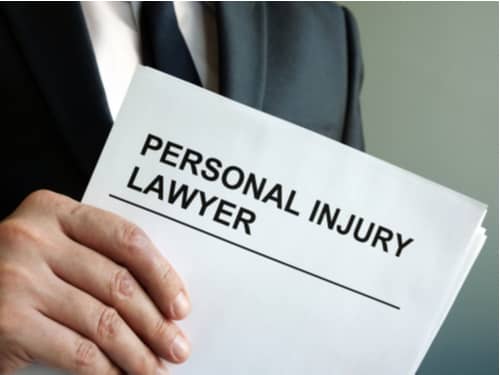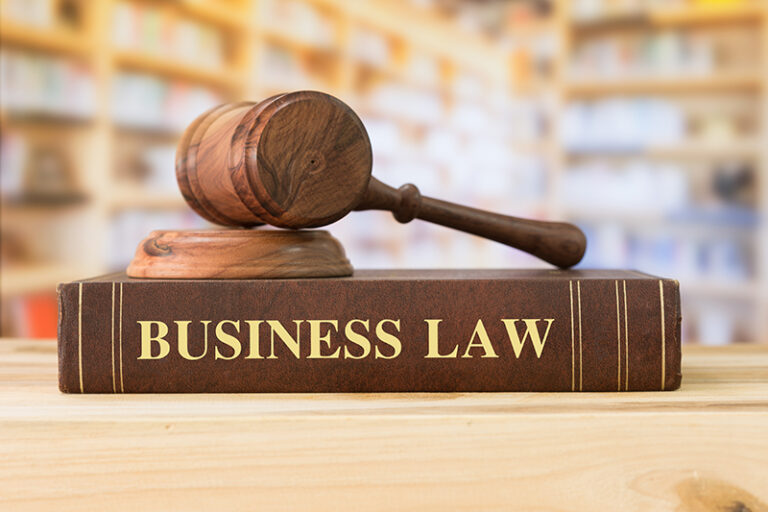- Personal Injury
You most likely have heard about personal injury cases. In fact, if you survive certain accidents, people may say that you have a personal injury case against the at-fault party. Then, you’ll need a Douglasville personal injury attorney.
Such a lawyer can help you get the maximum compensation from the responsible party. This is possible because Georgia is a fault-based accident state. So, you can file and win a personal injury claim against a negligent party. However, what exactly is a personal injury claim?
What Is a Personal Injury in Douglasville?
Before understanding personal injury cases, you must first understand personal injuries. A personal injury is a legal term for injuries to the body, mind, or emotions. Therefore, it’s the opposite of damage to property. Such injuries usually flow from personal injury accidents.
Notably, the mishap must have resulted from another party’s actions. This fault party may have also acted:
- Negligently
- Recklessly
- Carelessly, or
- Intentionally
There are also strict liability personal injury claims. These are cases where the defendant’s intention and mental state are irrelevant. We mean that it wouldn’t matter if the fault party acted negligently or intentionally.
There are several sources of personal injuries. Some of them include:
- Auto accidents
- Slip and falls or trip and falls
- Hazardous premises
- Dram shop liability
- Wrongful death
- Medical malpractice
- Defective products
- Dog bites
What Is a Personal Injury Case?
A personal injury case is a dispute arising from a personal injury accident. Notably, this dispute mustn’t be a lawsuit. Instead, parties can use insurance settlements. Statistics show that the majority of personal injury cases are settled out-of-court. The injured party is the plaintiff in a personal injury lawsuit.
Furthermore, the defendant is then the fault party. This is the entity the wounded individual sues. Personal injuries often lead to deaths. In such cases, the deceased’s estate can file a claim. This will be a wrongful death lawsuit.
Elements of a Douglasville Personal Injury Case
Most personal injury claims are based on negligence. So, you’ll have to prove the elements of negligence to receive compensation. Notably, there are three elements of a personal injury case. You would have to establish the three to win a case. We’ll explain them below.
Duty of Care
Firstly, you must show that the fault party owed you a duty of care. This is the most straightforward element to prove. This is because everyone has a responsibility not to endanger others around them. For example, a motorist must drive carefully to avoid hurting other road users.
Breach of Duty of Care
Next, you must show that the other party breached this duty of care. Usually, this refers to the particular negligent conduct they exhibited. You’re saying that they failed to exercise reasonable care. Notably, you cannot generally make an accusation of negligence. Instead, you must identify the particular wrongful action. A typical example will be overspeeding drivers.
Consequential Damage
Finally, you must prove that this breach of duty caused your accident. Although a party may be negligent, yet another factor can cause your mishap. Therefore, you must link your accident to bad conduct. Then, you have to establish that you suffered damages. If you didn’t suffer any damage, you cannot recover compensation.
Recoverable Damages in Douglasville Personal Injury Cases
The goal of personal injury cases is compensation. So, you can achieve this aim through lawsuits or settlements. Lawsuits involve battling with the fault party in court. Conversely, you can negotiate a settlement with the fault party’s insurer. Whatever the case, a successful claim leads to an award of damages.
Compensation usually aims to return the injured party to their state before the accident. Therefore, there are two major types of damages. We’ll explain them below.
Compensatory Damages
As the name implies, compensatory damages make up for the plaintiff’s losses. They cover injuries or other damage they sustain. Parties have to prove the actual losses they sustained to get any money. There are also two main types of compensatory damages.
Special Damages
Special damages refer to the definite financial losses the plaintiff sustains. So, it’s sometimes called actual or consequential damages. Usually, you can prove these losses with documents such as receipts. Examples of special damages include:
- Medical bills
- Ambulance fees
- Cost of alternative transportation
- Lost wages
- Price of lost or destroyed properties
- Cost of hiring household servants
- Loss of earning capacity
These are all out-of-pocket expenses flowing from the collision. You can attach a definite dollar amount to these losses.
General Damages
General damages are the exact opposite of special damages. They’re intangible losses that flow from the accident. Therefore, you cannot easily attach a dollar amount to this class of damages. Lawyers thus have different methods of calculating general damages.
Types of general damages include:
- Pain and suffering
- Disfigurement and impairment
- Mental anguish
- Emotional distress
- Loss of companionship
- Loss of consortium
- Reduced quality of life
Punitive Damages
Compensation isn’t the only goal of personal injury law. Instead, the law sometimes aims to punish the defendant. In addition, a judge may wish to deter the responsible party from future conduct. This is usually achieved through punitive damages. However, you can also call it exemplary damages.
With this class of damages, the court is making an example of the defendant. Consequently, others wouldn’t follow in their steps. Douglasville courts only award punitive damages in rare cases, though. A judge will only do so where the defendant’s conduct showed:
- Wilful misconduct,
- Malice,
- Fraud,
- Wantonness,
- Oppression, or
- An entire want of care
All these factors presume that the party was indifferent to the consequences of their actions. Insurance companies cannot award punitive damages against the insured. So, you must specifically ask a court for this class of damages.
Statutory Cap for Punitive Damages
Georgia law limits your recoverable punitive damages. Therefore, you can only get a maximum of $250,000. However, this statutory cap doesn’t apply:
- To product liability cases
- Where the defendant was under the influence of drugs or alcohol
- Where the defendant had a specific intent to cause harm.
You would also have to pay 75% of these damages to the Office of the State Treasurer. Fortunately, this is less a part of the litigation and attorney fees.
Get the Best Legal Representation for Your Personal Injury Case!
Have you survived a personal injury accident? Then, you may be eligible for compensation. However, the personal injury claims process is complex and complicated. It’ll thus be best to hire the best personal injury attorney in Douglasville.
Our team at Hartley, Rowe & Fowler has years of experience in winning personal injury cases. In addition, all our clients’ cases get personal attention. So, call us today for a FREE consultation on your claim.







